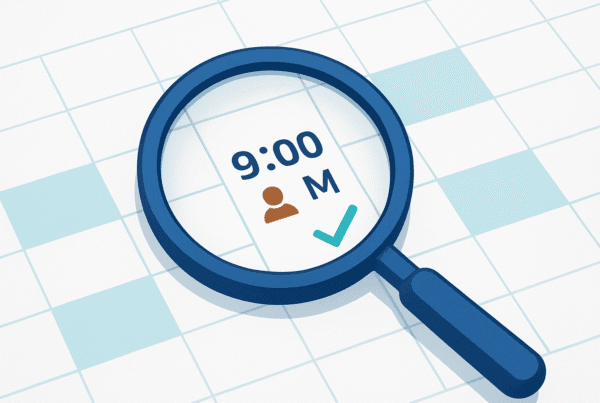Selling your memory care center is one of the most significant financial and personal decisions you will make. The Portland market presents a strong opportunity, with high demand and rising valuations. However, realizing your practice’s full value requires careful preparation and strategic navigation. This guide provides an overview of the key factors to consider, from understanding market dynamics to planning your post-sale life, ensuring you are positioned for a successful transition.
Market Overview
The market for memory care in Portland is robust, driven by a growing senior population and a clear need for specialized services. For owners considering a sale, the current climate is favorable. This strength is visible in several key areas.
High Demand and Rising Costs
The demand for memory care consistently outpaces other senior care sectors. This has allowed for steady increases in service costs. The average monthly cost for memory care in Portland rose by 10.5% between 2022 and 2023, now standing around $5,986. This financial resilience makes the sector attractive to buyers who see a stable revenue model.
Strong Occupancy Rates
Historically, memory care communities in Oregon have enjoyed high occupancy, reaching up to 86% in recent years. While rates fluctuate, they remain a strong indicator of a healthy and necessary service. For a seller, a well-occupied facility is a primary asset, demonstrating proven operational success and consistent cash flow to potential acquirers.
Key Considerations
Beyond the positive market data, a buyers focus will be on the operational integrity and regulatory standing of your practice. In Oregon, this means paying close attention to specific state requirements that directly impact value. For instance, buyers will scrutinize your acuity-based staffing tools required under SB 714, which determine appropriate staffing levels without a state-mandated ratio. They will also verify that your facility meets physical design rules, such as being on the ground level with direct outdoor access, and that your administrator fulfills the annual memory care-specific continuing education requirements. Preparing these areas for due diligence is not just about compliance; it is about proving your practice is a low-risk, high-quality asset.
Market Activity
The transaction market in Portland is active, with a diverse range of buyers creating a competitive environment. We are seeing significant movement from different types of acquirers, each with unique goals. A recent $25 million sale of a local 99-unit memory care community highlights the high-value deals taking place. Understanding who these buyers are is key to positioning your practice effectively.
| Buyer Type | Focus | What They Look For |
|---|---|---|
| Private Equity Groups | Scale and Platform Building | Strong EBITDA, efficient operations, and potential for regional growth. |
| Strategic Acquirers | Expanding a Regional Footprint | Facilities that complement their existing network and brand. |
| Independent Operators | Turn-Key Operations | A single, well-run facility with a stable staff and sterling reputation. |
This activity, especially the trend of for-profit entities acquiring from non-profits, shows a market in a dynamic phase of consolidation. For an independent owner, this creates a window of opportunity to sell to a well-capitalized buyer seeking proven assets.
Sale Process
A successful sale does not happen by accident. It follows a structured process designed to protect your confidentiality and maximize your final value. The journey typically begins with deep preparation, where you and your advisory team organize financials and operational documents to present a clean, compelling story. This is followed by a confidential marketing phase, where we approach a curated list of qualified buyers. Once interest is established, you will navigate letters of intent, a rigorous due diligence period where the buyer verifies every aspect of your business, and finally, the legal closing. Each step presents its own challenges, and navigating them without expert guidance can lead to value leakage or a broken deal.
Valuation
What is your memory care center actually worth? The answer is more complex than a simple revenue multiple. A professional valuation looks past the surface to calculate your practice’s Adjusted EBITDA (Earnings Before Interest, Taxes, Depreciation, and Amortization). This figure normalizes for owner-specific expenses and one-time costs to reveal the true underlying profitability that a buyer is acquiring.
Several key factors will then determine the multiple applied to that EBITDA:
- Adjusted EBITDA: This is the foundational metric. It reflects the true profitability a new owner can expect. We help identify and justify add-backs to present the strongest possible financial picture.
- Payer Mix and Revenue Stability: A healthy mix of private pay and other stable reimbursement sources reduces perceived risk and increases value.
- Operational Maturity: A proven track record of regulatory compliance, stable staffing, and documented procedures is highly attractive to buyers.
- Growth Potential: A clear, believable story for how a new owner can expand services or improve efficiency can add a significant premium to your valuation.
Most practice owners are surprised to learn how these adjustments can impact their final number. Understanding this from the start is the foundation of a strong negotiating position.
Post-Sale Considerations
The transaction closing is not the end of your journey. Planning for what comes next is a critical part of the sale process itself. Your role in the transition, the future of your dedicated staff, and the preservation of your legacy are all on the table. Deals can be structured in many ways, including with an earnout, where a portion of the sale price is tied to future performance, or an equity rollover, where you retain a minority stake in the new, larger entity. These structures can offer significant upside but require careful negotiation. Thinking through your personal and financial goals for life after the sale will help you and your advisor structure a deal that secures not only your wealth but also your peace of mind.
Frequently Asked Questions
What is the current market demand for memory care centers in Portland, OR?
The market for memory care in Portland is robust due to a growing senior population and increasing need for specialized services. Demand consistently outpaces other senior care sectors, driving up service costs and making the sector attractive to buyers.
What regulatory requirements should I prepare for when selling a memory care center in Portland?
Buyers will focus on operational integrity and regulatory standing. In Oregon, you must comply with SB 714 acuity-based staffing tools, physical design rules such as ground-level access with outdoor entry, and memory care-specific continuing education requirements for administrators.
How is the valuation of a memory care center determined in Portland?
Valuation is based primarily on adjusted EBITDA, which normalizes profits by removing owner-specific expenses. Factors influencing valuation include payer mix, revenue stability, operational maturity, and growth potential, with professional valuation necessary for accurate pricing.
What types of buyers are in the Portland memory care center market?
Buyers include private equity groups looking for scale, strategic acquirers expanding regional networks, and independent operators seeking turn-key, well-operated facilities. The market is dynamic with increasing consolidation from for-profit entities acquiring from non-profits.
What should I consider about the sale process and post-sale planning?
A successful sale requires careful preparation and a structured process including confidential marketing, due diligence, and legal closing. Post-sale considerations include your role in transition, staff futures, deal structures like earnouts or equity rollovers, and aligning the sale with personal and financial goals.



